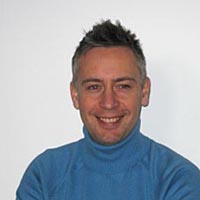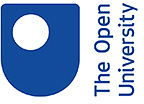You are here
- Home
- Cohort profiles
- Profiles 2013 (3)
Profiles 2013 (3)
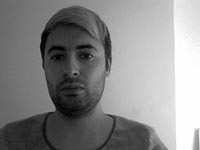 Tom Houlton
Tom Houlton
English, University of Sussex
My PhD research is focused on monuments, specifically those of contemporary artists such as Rachel Whiteread, the German school of ‘countermonuments’ and contemporary practices such as ‘guerrilla gardening’ and non-permanent monuments. Although I am focusing on these works primarily from an aesthetic or object-relations standpoint (as opposed to anthropological or political), I’m interested in how these monuments might be experienced by a visiting public as something ‘other’ than sculpture.
A masters degree in Museum Studies has already introduced me to these concerns of curation and public engagement, and previous jobs in art galleries and museums have made me even more conscious of how research can be presented to different audiences using a range of media tools. I would like to be able to develop a clearer understanding of how these media tools work, and what the possibilities are for a research project such as my own, which is concerned with theorising public art.
It would be great to be able to work closely with art institutions or media outlets to engage in a dialogue between academics, artists and a wider, non-academic audience. The opportunities and training skills the Public Intellectual programme provides for this are, I think, really exciting.
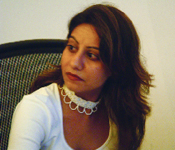 Zehra Jumabhoy
Zehra Jumabhoy
Art History, The Courtauld Institute of Art
https://vle.courtauld.ac.uk/course/view.php?id=334
The programme seems ideally suited to my current needs – in fact, I wish such a course had been available to me years ago. Before I joined the Courtauld as a PhD Candidate researching contemporary Indian art, I worked as the Visual Arts Editor for Time Out Mumbai, and then as Assistant Editor for ART India magazine, the country’s premiere art journal. Both posts involved public speaking and media appearances. In the latter position, I frequently found myself playing the part of a guide to India’s burgeoning art scene for visiting curators, museum directors and politicians. For example, I was featured as ‘the local expert’ on ‘India For Beginners’, a TV Series by Kanakna Productions, a Belgian production house. These ventures were exciting, but I was conscious of being unprepared for this role. As a student at the Courtauld, I continue to engage with non-academic audiences – by organising Seminars on South Asian art, participating on panels, writing for art magazines (eg Artforum, frieze) and contributing to art books (e.g. Phaidon’s Vitamin series). Recently, I was interviewed as an ‘Indian art critic’ by Cardiff Radio. Thanks to my Supervisors, I have improved at public speaking but I still find it intimidating: I am conscious that I have not been formally trained. Hence, I am eager to interact with other other students on the programme and learn about ‘Becoming a Public Intellectual’.
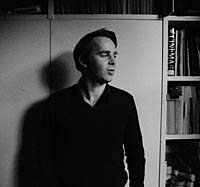 Ben Lyle
Ben Lyle
Film, Television and Media Studies, University of East Anglia
My research, like my past experience, straddles industry and academia and I plan to continue on this path post-PhD. Engaging with the public and the media will be a key part of this.
There is wide public interest in film outside academia and my research should tap into this. Much of my primary evidence, for example, is interviews with practitioners, from writers to producers and executives.
As film is such an important part of the media, one of the key skills I need when dealing with media outlets will be to bring an academic rigour to the subject rather than fitting in to established industry/critical modes of communication. Negotiating this, and learning to deal with the media more generally, is something I feel the course will greatly help me with.
In addition to this, my research and hoped-for career path will take me into contact with both public bodies (i.e. the BFI) and the wider industry and the course will enhance my ability to do this effectively.
I believe there’s a lot of public interest in my area of research, if only I can present it in the right way. The course will help me greatly in doing that.
 Lucy Moyse
Lucy Moyse
Art History, The Courtauld Institute of Art
Few are unaffected by fashion: it is one of the world’s largest industries, an important source of cultural output, and it clothes and expresses the body. Despite this vast potential for widespread appeal, the history of dress is currently underrepresented within the media. By participating in the 'Becoming a Public Intellectual' programme, I hope to gain the necessary skills to engage wider audiences with it.
My current doctoral research, which explores the surprising intersections between violence and fashion, could be of great public interest. Whilst it focuses on the interwar years, it addresses transcendent notions such as modernity, femininity, and sexuality, and traces the roots of current-day phenomena to the period. I am excited to discover techniques to effectively communicate these ideas to a broader reception.
My experience so far with the media and general public, including working at the BBC and lecturing at The Courtauld Gallery, has been rewarding, and I am thrilled to have the chance to build upon this so comprehensively within the course. To inform and entertain the public through intellectualism is a privilege, and as a result of the programme, I hope to be able to help shape this positively and pragmatically in the future.
